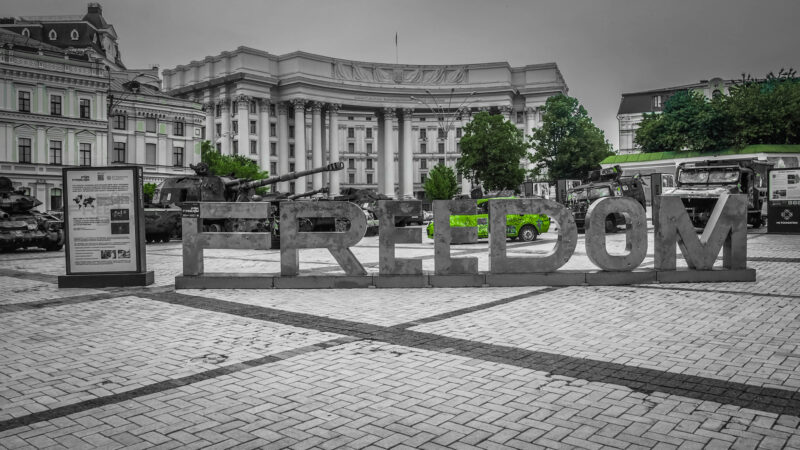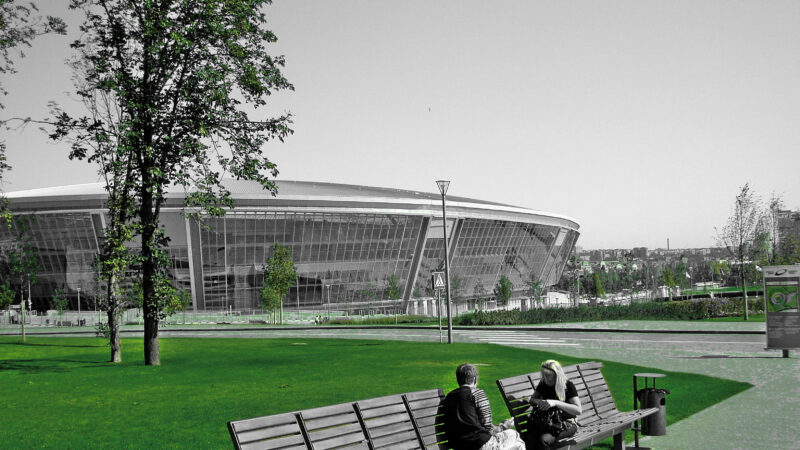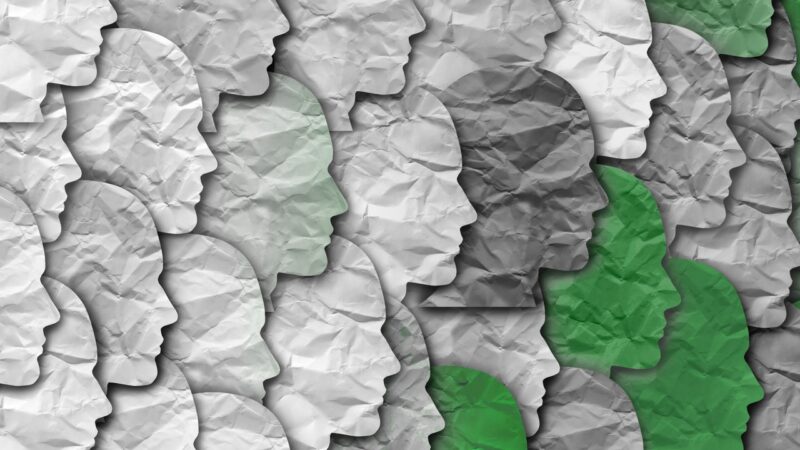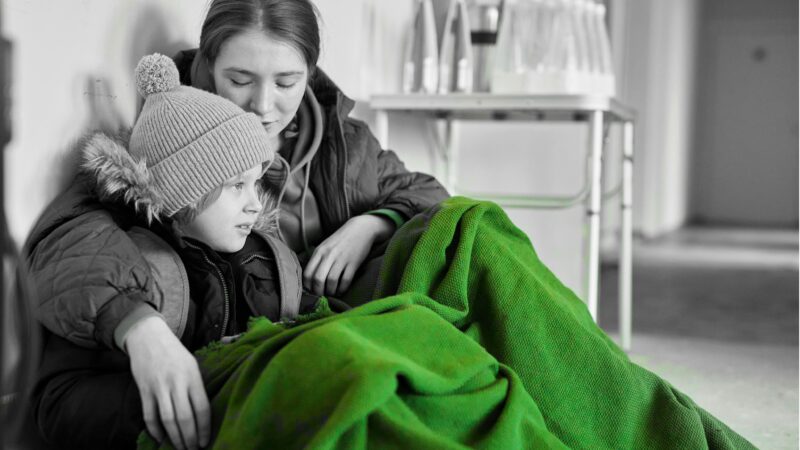Contradicting Putin: Ukrainians and Russians are not “one people”
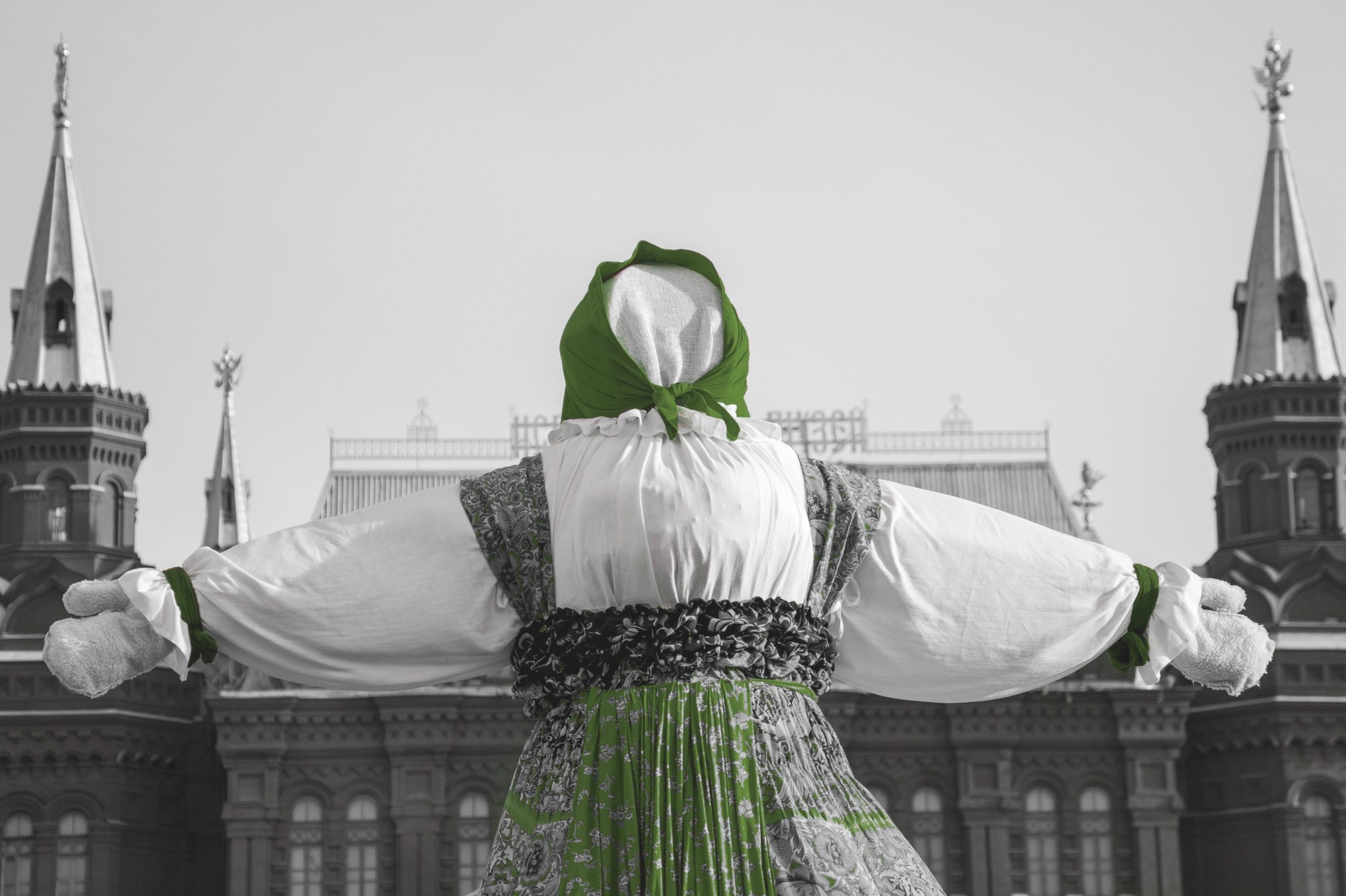
In 2014 the international community felt some responsibility to respond to Russia’s military aggression against Ukraine. Ultimately, however, the hesitancy with which international community acted when Russia annexed Crimea and occupied some regions of the Donbas sent a clear signal. Was it worthwhile to sacrifice old and profitable ties with Russia for a new post-Soviet state that was barely known? Was this sacrifice warranted for a country whose name was repeatedly pronounced with a misplaced definite article, “the” Ukraine? This was the attitude that justified the easy acceptance of Russian narratives about Ukraine. This attitude also justified and encouraged dismissive comments that easily aborted attempts to shift the emphasis from “the poked roaring bear” toward Ukraine. Ukraine received some compassionate comments about its citizens who lost their lives on the Maidan, but the political priority remained the same: do not aggravate “the bear.”
The pretext for the Russo-Ukrainian war
Eight years after the initial aggression, on 24 February 2022 at 5 a.m. Eastern European Time the Russian Federation launched an armed invasion of Ukraine. Russian president Vladimir Putin disguised this assault as a “special military operation” in the Donbas. Instead, however, on 24 February the Russian military forces advanced not only in the eastern regions of Ukraine; towns and cities across the country awoke to the sounds of massive explosions. Within an hour it became clear that what Putin announced as a “special military operation” was Russia’s escalated, full-scale war on Ukraine.
The pretext for the invasion was to “protect” Russian speakers living in the eastern parts of Ukraine who, according to Putin, were “oppressed” by the Ukrainian “neo-Nazi” government. Russia’s accusations toward the Ukrainian government were not simply ungrounded but ambiguous. Following the Euromaidan events of 2014, Ukrainians stood up against their president’s attempts to establish a dictatorship and fought for freedom and democracy. Nevertheless, in Putin’s reality freedom and democracy can be presented as manifestations of Nazism and fascism, and since 2014 his rhetoric about Ukraine’s “neo-Nazism” has been integrated into his vision of Ukraine.
Putin ignores the fact that the person who leads Ukraine today during its resistance against Russia’s belligerence is of Jewish descent. Volodymyr Zelensky’s relatives fell victim to Nazis during the Holocaust. Putin’s rhetoric about the need to “de-nazify” the Ukrainian government reveals not only its duplicitousness but also its amorality.
In hindsight, we can look for facts that could have warned us about Putin’s plan to launch a military assault against Ukraine. In his already well-known article on the “historical unity” of Russians and Ukrainians, Putin persisted in commenting on their “fraternal” relationship, underlining that they constitute “one people.” Published in July 2021, just a month before Ukraine’s celebration of 30 years of its independence—which had been overwhelmingly supported by Ukrainian citizens in 1991—this screed was filled with historical inaccuracies and misconceptions. It was not the first attempt by Putin to construct a manipulative historical narrative for Russia, Ukraine, and the international community in general. During the 2014 invasion of Ukraine’s Autonomous Republic of Crimea, the Russian president presented his view on the history of the peninsula, which, according to his statements, is part of the very essence of Russian history and Russian national identity. Simultaneously, he mentioned the historic Novorossia region in Southern Ukraine during the occupation of the Donbas, attempting to resurrect another of Imperial Russia’s territorial projects.
In his article Putin lamented about the “wall” that emerged between the two countries over the last few years, declaring that it arose as the consequence “of our mistakes” which were made at different time periods. But “the wall” is also a result of the activities of those forces, which aimed to subvert “our unity.” The consistent usage of the words “uniting,” “we,” and “our” was dominant in his essay: through this linguistic nuance, Putin again drew Russians and Ukrainians into one historical, political, cultural, and memorial space. To fulfill his goal to re-create an illusory “shared space” in which the Russians and the Ukrainians were “brethren” again, he conflated historical facts and created his version of the history of the two countries, which, when following his rhetoric, is/should be one—Russia. This vision was transmitted to a broad audience that extended beyond the borders of the Russian Federation.
Unquestionably this article could have been taken as a warning in Ukraine, but many disregarded its threatening implications, commenting on it only briefly and then dropping the discussion. Some refused to even engage in any kind of analysis as they did not find it worthy of any attention. But it should have been taken more seriously, for only a few months later, on 22 February 2022 Putin would follow up with another “gesture of friendship”—recognition of the “independence” of the occupied parts of the Donetsk and Luhansk oblasts—and on 24 February 2022 would give orders to his militaries to “de-militarize” and “de-nazify” Ukraine, which did not welcome his historical visions in which Ukraine simply did not exist, does not, and should not exist.
The war as a tool to “Russify” regional political realities
As a result of the Russian aggression against Ukraine that started in 2014, more than thirteen thousand people lost their lives. Millions of people had to relocate from Crimea and the Donbas to different regions in Ukraine, European Union, as well as Russia. Since the full-scale invasion in February, these numbers have increased to an unprecedented scale. Thousands of civilians have been murdered, hundreds of children killed, thousands of Ukrainians detained and tortured by Russians, and many deported to the Russian Federation. Russians place Ukrainians in “filtration” camps and force Ukrainian children to learn the Russian language. Airstrike sirens are activated across the entire country more and more frequently. The country’s infrastructure has been severely damaged: many regions have been razed to the ground and will have to be completely rebuilt.
The current Russo-Ukrainian war revealed Putin’s neo-imperialistic ambitions not only in Ukraine but in the rest of Europe as well. In spite of the Kremlin’s ceaseless rhetoric about friendship and cooperation that the Russian Federation prioritizes in its relations with all neighbouring countries, its policies of coercion constitute one of the major Russian international tactics. As the Russian officials, including Putin, made it clear in the fall of 2021, their priority is to stop the enlargement of NATO, which means barring countries such as Ukraine and Georgia from joining the alliance. This rhetoric intensified after 24 February. However, as the Russian war against Ukraine continues, Putin moves ever more threateningly toward NATO countries—not away.
Ukraine’s divergence from Russian memorial programs
While intricacies of international politics play a major role in the current Russo-Ukrainian war, we should not forget about another aspect that this war has already revealed. Ukrainians were consistently diverging from the imperial Russian memorial programs that attempt to strengthen the belief that Ukrainians and Russians are “one people.” While these programs succeeded in Russia and to a certain degree in Ukraine, the cultural memory in Ukraine maintained a distinctiveness which was transmitted from generation to generation and which led to Ukraine’s independence, fulfilling ambitions that had developed long before 1991.
Contested memory issues focusing on language, ethnicity, and memory were ultimately transmitted from generation to generation, becoming part of the very texture of cultural and national memory in Ukraine. This memory is rooted first and foremost in the uprooted (pun intended) sense of one’s distinctiveness and otherness, national in particular. To be distinct from Russians, in many cases Ukrainians were meant to become invisible and, at times, to recognize their deficiency and inferiority. As a result of memory tactics exploited by the Russian Empire and later by the Soviet Union (and its official heir, the Russian Federation), Ukrainians had to remember themselves as inferior to their “great brother.” A priori, Ukrainians’ language and culture were positioned by Russian officials, critics, and, very often, intellectuals and intelligentsia as something beautiful but less sophisticated than all things Russian: not as “great” when compared to Russian culture and language. The official Russian rhetoric about the “great Russian language and culture” still has discriminative repercussions even today. The language bans that were implemented by the Russian Empire secured the stability of the prejudices against the Ukrainian language and led to the formation of an inferiority complex that was projected onto the Ukrainian speakers at a national level. The poetess Lesia Ukrainka was revolutionary in drawing attention to this national issue; not only did she encourage Ukrainians to embrace their language that some would regard as a “peasant” one but she also directly confronted Russians by advising them to deal with their own inferiority complexes. After all, the majority of the Russian aristocratic elite had long shunned the Russian vernacular until Alexandr Pushkin subverted the non-Russian aristocratic linguistic elitism.
Ukrainians, after 2014 in particular, seem to have embraced the discovery of their memory, of memories that they choose of the past that they remember and transmit from generations to generations. Many will see this interest in memory as an attempt to nationalize memory, past, and history, which carries a number of risks potentially pernicious to the nation. But before making such accusations, it is worthwhile to entertain the idea that this interest in memory is part of a healing process.
The current war between Russia and Ukraine developed not only as a result of profoundly different political strategies and interests prioritized by each state, but also as a result of deeply rooted contested memory regarding the right to be distinct not only politically but mnemonically as well. In terms of the latter, Russia continues to deny Ukraine’s right to its distinctiveness. For Putin, Ukrainians who do not agree with his maxim about Russians and Ukrainians being “one people” are “neo-Nazis” who should be eliminated. Thus, by waging the current war Putin is driven not only by his desire to re-establish Russia as a superpower. As Hiroaki Kuromiya aptly notes, he has already lost: “Clearly, from the beginning Russia was no match in spirit and morale for a country fighting for its very existence. Russia has already lost in the court of world opinion and will certainly lose in the court of world history.”
Russians and Ukrainians have never been “one people”
We can speculate about what Putin’s ultimate geopolitical goal is, but at least one thing is quite evident: Putin endorsed the annihilation of an entire nation that he believes should not exist and cannot exist. His language echoes the language of imperial Russia’s officials who declared bans against the Ukrainian language. Putin uses his mantra about Russians and Ukrainians being “one people.” But how can one explain then the approval of killing the very people whom he regards as part of the Russian people?
The truth is that the political and cultural differences between Ukrainians and Russians are profound. Putin is probably not really sincere when he says that Russians and Ukrainians are “one people.” Indeed they are not, and he most likely understands this quite well. In fact, it is precisely the profound differences between the two nations that threatens him. He also understands well that there is no grand Russia without Kyiv, without the culture-history of Kyivan Rus’, and therefore the Russia he represents and promotes—an imperial Russia that cannot exist without Ukraine—is compelled to claim its right to Kyiv.
Ukrainians and Russians are not the same, they are different. They were made “almost the same” by imperial and Soviet Russians, and those who became fascinated and enchanted with the “great charm” of Russia and could not let go of this fascination, meanwhile turning a blind eye to Russia’s imperialism and colonialism in politics and culture. As a result, Ukraine became almost invisible—until Russia’s brutality made it visible. What a price Ukraine has to pay for the right to be distinct, to be taken as a sovereign state with its own history and culture, and not to be dismissed as a lesser-known region which does not deserve either political or academic attention since it is “very similar” to Russia. It is easier to focus on Russia, whose visibility has hardly ever been questioned. It has always been “prestigious” to do Russian studies since Russia is one of the regions that deserves much academic and political attention. Ironically, the events of 2022 puzzled the world. The war was waged by a Russia that the world still struggles to understand. Ukraine, its neighbour—the people of a country that cannot compete with Russia in terms of geographical prevalence—have left the world in awe with their brave resistance against Russia’s invasion. It was this significantly smaller country that for decades did not seem to deserve any “serious” attention from politicians and academics that has subverted the overpowering presence of Russia in the region.
After Russia’s initial aggression in 2014, one could not find a unanimous opinion on the Russo-Ukrainian war in Ukraine; for some it was a war initiated by Russia, while for others it was the inability of the Ukrainian government to conduct an efficient domestic policy that led to the confrontation between the Ukrainians and the Russians. Russia’s full-scale invasion of Ukraine in 2022 changed this significantly. More than 90% of Ukrainians across the country believe that Ukraine will defeat Russia, and the sentiment about Ukrainians and Russians being “brethren” has lost its supporters. Ukrainians have embraced and internalized their profound differences from Russians, not only political differences but cultural ones as well. Ukrainians are paying a very high price for their choice not to be Russians. On the other hand, today’s decisive resistance against Russia’s dictatorship would not have been possible without years and centuries of Ukraine’s resilience against oppression perpetrated by Russia’s manipulative narratives, targeting the distinctiveness of Ukrainians and attempting to turn Ukrainians into Russians.
